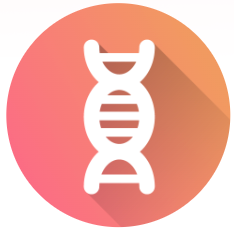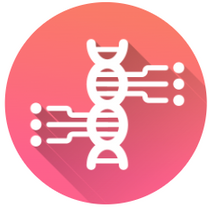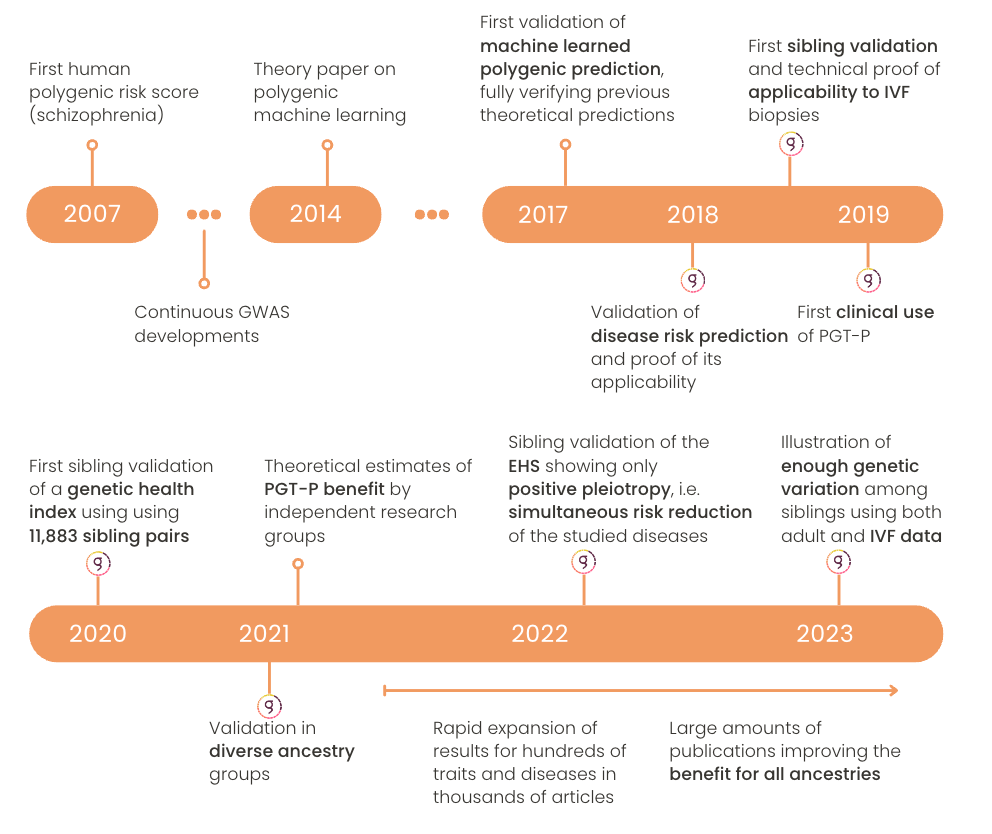Precision, Reliability
& Confidence
LifeView™ PGT was created by Genomic Prediction, based on rigorous peer-reviewed validation, and more data-per-embryo than any other preimplantation genetic test available today.
JOIN US
Join Our Community Of Exceptional Providers
Embarking on your journey with us is a seamless process designed to ensure your success every step of the way.
Here's how to get started:
- Connect with our Commercial Team
- Perform a test run
- Experience white-glove onboarding
- Get ongoing dedicated support for your success
This comprehensive approach ensures that you receive the support and guidance you need to establish a successful partnership with us.
Our Story
From Personal Experience
To Personalized Care
For Dr. Nathan Treff, our co-founder, helping patients create healthy families is personal. As someone who was diagnosed with Type 1 Diabetes as a grad student, the ability to screen for various diseases in the preimplantation embryo has become his life’s work. He’s been pushing the genetic field ahead with continuous research since founding LifeView in 2007.
LifeView™ PGT provides the most advanced genetic screening for the IVF embryo available. Studies comparing LifeView to conventional testing methods proved higher pregnancy rates and lower miscarriage rates.

PGT-A
PGT-A screens embryos for aneuploidy so that you and your care team can select an embryo with the correct number of chromosomes (euploid) for transfer, increasing your chances of success and a healthy child.

PGT-A+
PGT-A+ is done in conjunction with PGT-A and indicates if the chromosome abnormality originated from the egg (maternal) or sperm (paternal). PGT-A+ requires saliva samples from the patient, partner, and/or gamete donor in addition to embryo samples.

PGT-M
Monogenic disorders are inherited conditions caused by genetic variants in a single gene. PGT-M is designed for individuals who have a higher chance of passing on these types of conditions to their children.

Embryo Health Score® Test
The LifeView Embryo Health Score test evaluates genetic variants to assess the risk of polygenic conditions like diabetes, cancer, schizophrenia, and heart disease in your future child. It also helps you and your clinician compare disease risks among embryos to decide which one to prioritize for transfer.

PGT-SR
Individuals who are carriers of balanced chromosome rearrangements have a higher chance of creating embryos with extra or missing genetic material. This can lead to fertility problems, pregnancy loss and health issues in an ongoing pregnancy. PGT-SR is designed to select embryos without such chromosome rearrangements for transfer.

M2
Biological parents are screened for a gene associated with increased miscarriage risk. Testing for the M2 haplotype is simple and only requires a saliva sample from the biological parents. If the M2 haplotype is present in any of the biological parents it is possible to screen the embryos for the genetic variant.
Embryo Health Score Test
Studies And Validations
Polygenic risk scores – the technology behind the Embryo Health Score Test (EHS) – have been around over 15 years, with the last half-decade bringing an explosion of advancements. Polygenic testing is now becoming widely adopted, based on a solid foundation of evidence. The benefit of PGT-P and the EHS is part of these scientific breakthroughs. By using more than 40,000 siblings with full health records,
PGT-P and the EHS have been validated in multiple peer-reviewed publications, proving that it lowers disease risks simultaneously (also among full siblings), can be calculated from a single standard embryo biopsy, and provides benefit for all ancestries.

Partnerships & Collaborations
Used and loved by people at leading companies








